Are you dreaming of that new car or dream home, but worried about your credit score standing in the way? Well, fear not!
In this article, we’re going to reveal some clever strategies that will help you improve your credit score before applying for a loan. By taking a proactive approach and following these tips, you’ll be well on your way to financial success.
So buckle up and get ready to take control of your credit destiny!
Key Takeaways
- Prioritize paying off outstanding debts
- Manage credit card utilization
- Keep track of payment deadlines
- Avoid opening multiple credit accounts
Understanding Your Credit Score
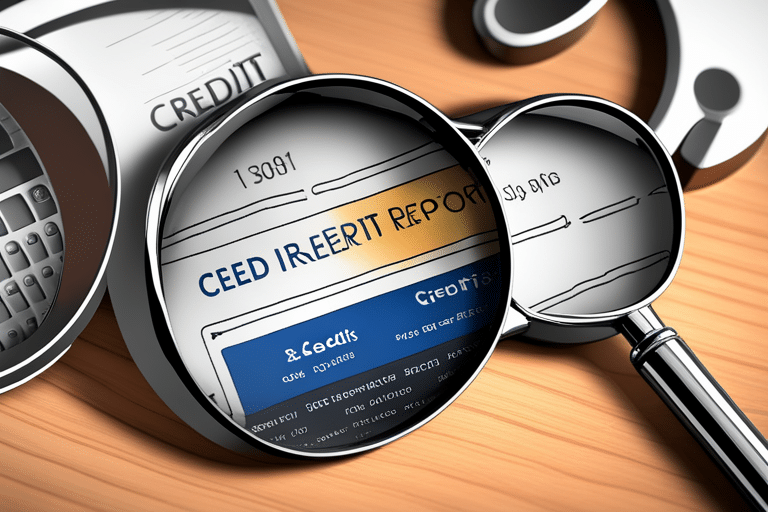
Understanding your credit score is crucial before applying for a loan. It’s like trying to navigate through a dense forest without a map – you need to know where you stand financially. So, let’s embark on this journey of understanding creditworthiness together!
First things first, creditworthiness refers to how likely you are to repay your debts based on your financial history. Think of it as a report card that lenders use to assess if they can trust you with their hard-earned money. Your credit score is the numerical representation of this assessment, ranging from 300 (poor) to 850 (excellent).
Now, here’s where it gets interesting – credit utilization. Imagine yourself going on a shopping spree and swiping your credit card like there’s no tomorrow. Fun, right? But hold on! Your credit utilization ratio plays a big role in determining your creditworthiness. This fancy term simply means how much of your available credit you’re actually using.
To put it simply, the lower your credit utilization ratio, the better! Try not to max out those shiny plastic cards because it shows lenders that you can manage debt responsibly. Aim for keeping it below 30% and watch your credit score soar higher than an eagle!
Reviewing Your Credit Report
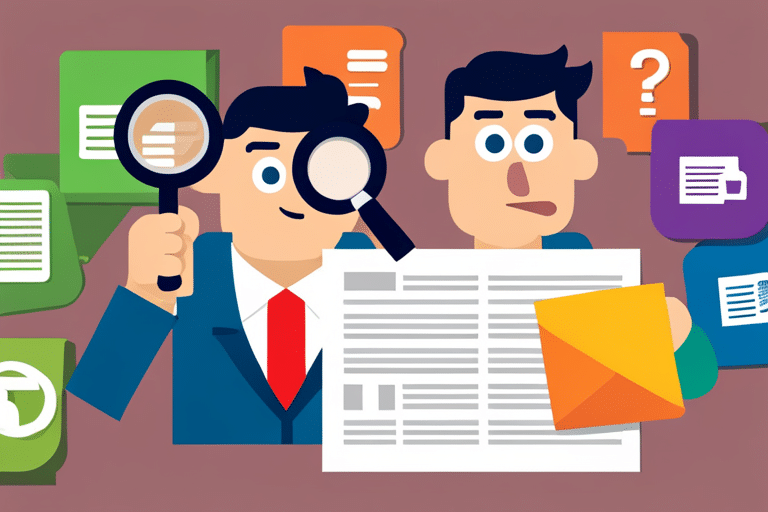
Take a moment to review your credit report and identify any errors or discrepancies. It may not sound like the most exciting task, but trust me, it’s an important one.
Your credit report is like a snapshot of your financial life, and it can have a big impact on your credit score. So, grab a cup of coffee and get ready to dive into the world of credit reports!
Now, reviewing your credit report doesn’t mean you have to become Sherlock Holmes overnight. It simply means taking a close look at the information listed and making sure everything is accurate. Look out for any accounts that don’t belong to you or payments that were reported late when they weren’t. These inaccuracies can drag down your credit score, so it’s crucial to spot them.
Improving your credit habits starts with identifying where things went wrong in the first place. Maybe you missed some payments due to unforeseen circumstances or there was an error in reporting by one of your creditors. By reviewing your credit report, you’ll be able to see these patterns and take steps towards fixing them.
Once you’ve identified any errors or discrepancies, it’s time to dispute them with the credit bureaus. This involves contacting each bureau directly and providing evidence to support your claim. It may take some time and effort, but trust me, it’s worth it for the sake of improving your credit score.
Identifying and Disputing Errors
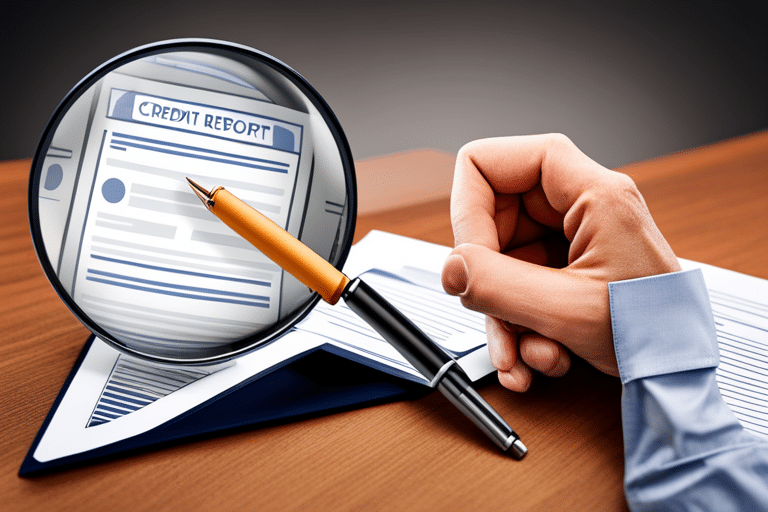
Hey, you! Ready to dive into the world of credit report errors? Well, buckle up because we’re about to embark on a wild journey of detecting those sneaky mistakes, correcting inaccurate information, and challenging any erroneous credit data that comes our way.
Don’t worry, though; we’ve got your back every step of the way. Let’s get started and set things right!
Detecting Credit Report Errors
Check your credit report regularly to identify any errors that may be negatively impacting your credit score. Here are four reasons why monitoring your credit report is essential for maintaining a healthy credit score:
-
Spotting inaccuracies: Imagine you’re playing a game of spot-the-difference, but instead of pictures, it’s your financial history. By checking your credit report, you can catch any errors or discrepancies that might be dragging down your score.
-
Preventing identity theft: Think of yourself as a superhero protecting your financial identity. Monitoring your credit report allows you to detect any suspicious activity or unauthorized accounts before they wreak havoc on your credit.
-
Understanding scoring factors: Unveiling the secrets behind the magic curtain of credit score calculation helps you become a master in this mysterious realm. By reviewing your report, you can identify which factors are positively or negatively affecting your score.
-
Taking proactive steps: Armed with knowledge from monitoring, you can take action to correct errors and improve aspects contributing to a lower score. It’s like being the director of an epic movie where you control the plot and ending – except this time, it’s your financial future!
Correcting Inaccurate Information
Make sure you review your credit report regularly to identify and correct any inaccurate information that could be negatively affecting your financial standing.
Your credit report is like a window into your financial world, and it’s important to keep it clean and accurate. But don’t worry, correcting any errors can be as easy as a walk in the park!
If you come across fraudulent activity on your report, dispute it immediately. You have the power to protect yourself and ensure data privacy by reporting any suspicious or unauthorized transactions.
Challenging Erroneous Credit Data
If you believe there is erroneous credit data on your report, it’s crucial to take immediate action and dispute any inaccuracies. Don’t let those pesky mistakes ruin your credit score!
Here are four simple steps to help you challenge the incorrect charges and rectify those credit score mistakes:
-
Review your credit report: Get a copy of your credit report from the major bureaus and carefully examine it for any errors or discrepancies.
-
Gather supporting documents: Collect all relevant documents that prove the inaccuracies in question, such as receipts, statements, or correspondence.
-
File a dispute: Contact the credit bureau(s) in writing and provide them with detailed information about the disputed items along with copies of supporting documentation.
-
Follow up and track progress: Keep records of all communications with the bureau(s) and regularly check for updates on their investigation process.
Paying Off Outstanding Debts
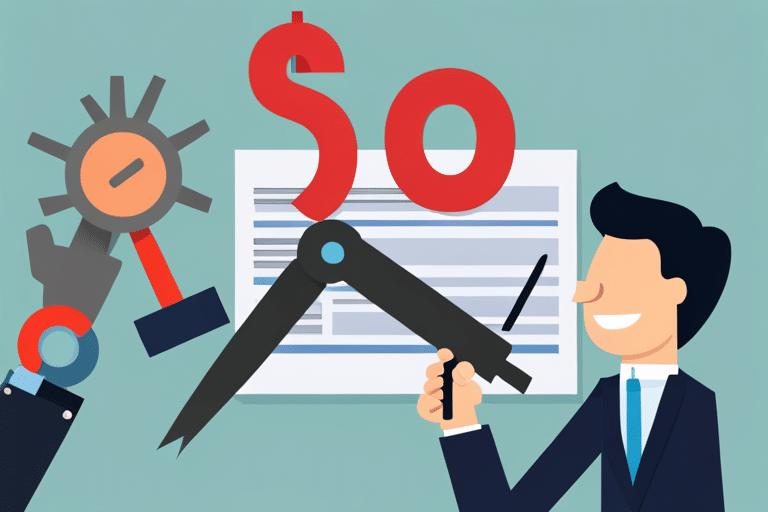
To improve your credit score before applying for a loan, you should prioritize paying off any outstanding debts. It’s like tidying up your financial room before inviting someone over – you want everything to be in order and looking its best. So, roll up those sleeves and let’s get started!
One strategy to consider is debt consolidation. This involves combining all of your debts into one single payment with a lower interest rate. Think of it as creating a super team of debts that work together to bring down your overall balance. It can make managing payments easier and save you money in the long run.
Another helpful resource is credit counseling services. These professionals are like financial coaches who can guide you through the maze of debt repayment strategies. They’ll analyze your current situation, offer advice on how to tackle your debts effectively, and even negotiate with creditors on your behalf. With their expertise by your side, you’ll have a better chance of successfully paying off those outstanding balances.
Remember, Rome wasn’t built in a day, and neither will your credit score be magically fixed overnight. But by prioritizing the payment of outstanding debts and seeking assistance from debt consolidation or credit counseling services, you’re taking important steps towards improving your financial health.
Managing Credit Card Utilization

Hey there! So, you’ve got some credit card balances that need a little TLC? No worries, we’ve got your back!
In this discussion, we’ll dive into two key points: lowering those pesky credit card balances and using credit responsibly.
Get ready to tackle those balances like a boss and become the master of responsible credit usage!
Lowering Credit Card Balances
One way you can quickly improve your credit score is by paying down your credit card balances. It may seem daunting, but with a little effort and discipline, you’ll be on your way to financial success.
Here are four tips to help you lower your credit card balances:
-
Consider credit card consolidation: If you have multiple credit cards with high balances, consolidating them into one loan can simplify your payments and potentially lower your interest rate.
-
Explore balance transfer options: Some credit card companies offer promotional rates for balance transfers, allowing you to move debt from a high-interest card to a lower or even zero percent interest rate for a limited time.
-
Create a budget: Take control of your spending habits by creating a realistic budget that allows you to allocate funds towards paying off your credit card debt each month.
-
Cut unnecessary expenses: Evaluate where you can make cuts in your monthly expenses and redirect those saved funds towards paying down your balances faster.
Utilizing Credit Responsibly
Congratulations on taking the first step towards improving your credit score! Now that you’ve lowered your credit card balances, it’s time to focus on utilizing your credit responsibly.
This means being smart about how you use your credit cards and improving your credit utilization.
To start, make sure you’re only using a small percentage of your available credit. Aim to keep your balances below 30% of the total limit on each card. By doing this, you’ll show lenders that you can manage credit responsibly and won’t be seen as a risky borrower.
Another way to improve your credit utilization is by paying off your balances in full each month. This not only helps avoid interest charges but also shows lenders that you can handle debt responsibly.
By practicing responsible credit card usage and improving your credit utilization, you’ll be well on your way to boosting that all-important credit score!
Now let’s dive into the next tip: keeping track of payment deadlines…
Keeping a Track of Payment Deadlines
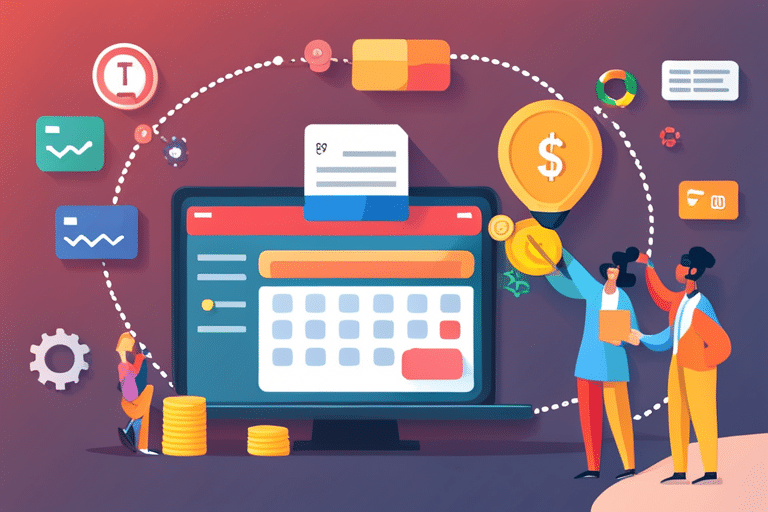
Make sure you’re aware of payment deadlines to effectively improve your credit score before applying for a loan. Keeping track of when your bills are due is crucial in maintaining a good credit history. Here are some tips to help you stay on top of your payments:
-
Set up automatic payments: By setting up automatic payments, you can ensure that your bills are paid on time every month without having to worry about missing any deadlines. This not only helps improve your credit score but also saves you from late fees and penalties.
-
Use credit monitoring services: Credit monitoring services can be a great tool in helping you keep track of your payment deadlines. These services provide alerts and reminders about upcoming due dates, allowing you to stay organized and avoid any potential late payments.
-
Create a payment calendar: If you prefer a more hands-on approach, creating a payment calendar can be helpful. Mark down the due dates for all your bills and set reminders on your phone or computer to make sure you never miss a payment.
-
Prioritize high-interest debts: If you have multiple debts with different interest rates, it’s important to prioritize paying off the ones with higher interest first. By focusing on these debts, you can save money in the long run and improve your overall financial health.
By keeping track of payment deadlines through methods like setting up automatic payments and using credit monitoring services, you’ll be well on your way to improving your credit score before applying for a loan.
Now let’s move on to another important strategy – avoiding opening multiple credit accounts…
Avoiding Opening Multiple Credit Accounts

Avoid opening multiple credit accounts, as this can negatively impact your financial health and make it harder to manage your debts.
Picture this: you’re at a buffet, and there are just so many delicious dishes laid out before you. You want to try them all, but you know that if you do, you’ll end up feeling stuffed and regretting it later. Well, the same concept applies when it comes to credit accounts.
You see, each credit account is like a plate of food. Opening multiple accounts may seem tempting at first – after all, who doesn’t want more options? But just like overeating can lead to indigestion and discomfort, opening too many credit accounts can lead to financial stress and difficulty managing your debts.
When you have numerous credit accounts, it becomes challenging to keep track of payment due dates and manage your expenses effectively. Not only that, but having multiple lines of credit also increases the temptation to spend beyond your means. It’s like having a smorgasbord of shopping opportunities constantly calling your name.
To avoid falling into the trap of overwhelming debt, focus on maintaining a low credit utilization ratio – that’s the amount of available credit you’re using compared to the total amount available to you. By keeping this ratio low and avoiding maxing out your cards or accumulating excessive balances on multiple accounts, you’ll demonstrate responsible borrowing habits.
Remember: moderation is key in both buffets and credit accounts! So resist the urge to open every tempting line of credit that comes your way. Instead, be selective with what works best for your financial situation – trust us; it will pay off in the long run!
Building a Positive Payment History

To establish a positive payment history, it’s essential to consistently pay your bills on time and in full each month. Building a strong credit foundation is like building a sandcastle – it takes time, patience, and careful attention to detail.
Here are some imaginative strategies to help you establish credit and build a solid payment history:
-
Automate Your Payments: Set up automatic bill payments so you never forget to pay on time. Think of it as having a personal assistant who ensures your bills are paid promptly.
-
Create Payment Reminders: Use technology to your advantage by setting up reminders on your phone or computer. Imagine your phone buzzing with excitement every time it’s time to pay your bills.
-
Start Small: Begin with small expenses that you can easily manage, like utility bills or subscription services. This way, you can dip your toes into the ocean of credit without feeling overwhelmed.
-
Stay Below Your Limit: Keep your credit utilization ratio below 30% by using only a portion of your available credit limit each month. It’s like going shopping but resisting the urge to buy everything in sight!
Establishing credit and building a positive payment history may seem daunting at first, but with these creative strategies, you’ll be well on your way to becoming a master of managing money responsibly!
Limiting Credit Inquiries

Limiting credit inquiries is important to prevent potential negative impacts on your credit history and score. Picture this: you’re a credit detective, always monitoring your financial moves and keeping an eye on those sneaky credit score factors. You know that too many credit inquiries can raise red flags for lenders and make them question your ability to manage debt responsibly.
So, how do you keep those inquiries in check? First, let’s talk about what a credit inquiry actually is. It’s basically a record of when someone checks your credit report, like when you apply for a new loan or open a new line of credit. Each inquiry leaves a little mark on your report, and too many marks can send the wrong message to lenders.
One way to limit these inquiries is by being mindful of every time someone asks for your social security number or checks your credit. Think twice before applying for multiple loans or signing up for every store card thrown your way during holiday shopping sprees (we’ve all been there). Instead, be strategic with which inquiries you allow and focus on building positive payment history.
Remember, it’s all about balance! So while it’s important to avoid unnecessary inquiries, don’t become so obsessed with avoiding them that you miss out on opportunities to improve your financial situation.
Now that we’ve covered limiting credit inquiries, let’s dive into the next strategy: seeking professional credit counseling. Because sometimes we all need a little help from the experts to navigate the world of finances and boost our credit scores even further.
Seeking Professional Credit Counseling

Now that we’ve covered credit inquiries, let’s explore how seeking professional credit counseling can provide valuable guidance for improving your financial situation.
Credit counseling is like having a personal financial superhero by your side, guiding you through the complex world of credit scores and debt management. Here are four reasons why seeking professional credit counseling can benefit you:
-
Expert Advice: Reputable credit counselors are like wise wizards of finance. They have mastered the art of understanding your unique financial situation and providing tailored solutions to help you improve your credit score. With their expertise, they can analyze your credit report, identify areas for improvement, and create a customized plan just for you.
-
Debt Management: Tackling debt on your own can feel like fighting an army of dragons with nothing but a toothpick. But fear not! Credit counselors are skilled in negotiating with creditors on your behalf, helping you set up manageable payment plans and even reducing interest rates. They will teach you the secrets to slaying those debts once and for all.
-
Budgeting Magic: Do you find yourself constantly wondering where all your money disappears to? Credit counselors possess magical budgeting skills that can turn even the most chaotic finances into organized treasure troves. They will help you create a realistic budget that takes into account both your income and expenses, ensuring every coin is accounted for.
-
Lifelong Financial Education: Seeking professional credit counseling isn’t just a one-time fix; it’s an investment in yourself and your future financial success. Reputable counselors will empower you with knowledge about responsible borrowing, smart spending habits, and long-term financial planning so that you can continue making wise decisions even after completing the program.
Frequently Asked Questions
Can Paying off a Loan Early Improve My Credit Score?
Paying off a loan early can indeed improve your credit score. By demonstrating responsible financial behavior, you show lenders that you can manage debt effectively, leading to a boost in your creditworthiness. No counseling required!
How Long Does It Take for a Credit Inquiry to Affect My Credit Score?
Don’t let a credit inquiry dampen your score! Minimize impact by being selective with loan applications. Boost your credit quickly with smart strategies like paying bills on time and keeping credit utilization low.
Will Disputing Errors on My Credit Report Automatically Remove Them?
Disputing errors on your credit report won’t automatically remove them, but it can help improve the accuracy of your credit history. Take charge and challenge any mistakes that may be dragging down your score!
Can My Credit Score Improve if I Have a High Credit Utilization Ratio but Always Pay My Bills on Time?
You may think your high credit utilization ratio is a roadblock, but fear not! By consistently paying your bills on time and implementing smart strategies, you can improve your credit score. Let’s dive in!
Is It Possible to Improve My Credit Score Without Seeking Professional Credit Counseling?
You don’t need a credit counselor to boost your credit score. There are plenty of effective strategies for managing credit on your own. Learn the ways and take control of your financial destiny!
Conclusion
Congratulations on reaching the end of our credit score improvement journey! You’ve successfully transformed your financial situation and are now ready to pursue your loan dreams. Your credit score is more than just a number; it symbolizes your potential for a brighter future. By following these strategies, you’ve discovered the key to unlocking doors of opportunity. So, go ahead and spread your wings, embracing a life filled with financial freedom and endless possibilities!

